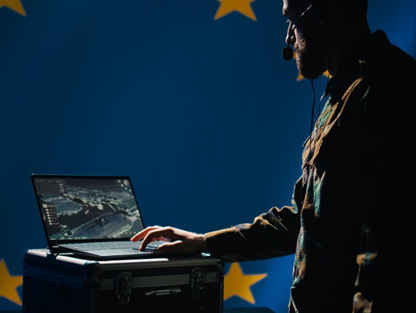
With great interest, we held the second part of our Common Criteria, The Security Passport workshop
2
min reading time
It proved to be a good decision to continue our workshop on Common Criteria on 9th June 2022. Many professionals attended to get first-hand information and updates from the world of CC and there has also been a lot of interest in CCGuide, our new educational material. Once again we made the presentations available on-demand to those who were unable to attend.
With many years of experience behind us, we also faced several challenges from our clients, which gave us the idea to organize a workshop onCommon Criteria last autumn. Our goal was to provide useful information and consultancy in preparing for Common Criteria evaluation. However, the world of CC is constantly changing, so the next workshop on this topic seemed necessary.
We have now tried to approach the topic of our workshop from several perspectives. Therefore in addition to CCLab’s experts, we invited as a guest speaker Mr. Hendrik Dettmer from TÜV Trust-IT, to speak about the expected changes related to the EUCC, and Mr. Marc Le Guin from TÜViT to share his experiences with BSI.
What could the participants learn?
- The future role of national schemes – dr. Katalin Szűcs
- Latest updates on EUCC scheme – Hendrik Dettmer
- BSI vs. OCSI- differences between the German and Italian scheme – Bence Szabó & Marc Le Guin
- Best practices for Common Criteria- zero to hero– Jonatán Bodó
- Introducing CCGuide, our new educational tool –Dániel Király
If you have missed any of our Common Criteria workshops, here’s the chance to check them out on-demand:
Common Criteria, the security passport - Part 1.
Common Criteria, the security passport - Part 2.
Are you interested in CCGuide early access program? Contact us and we will help you!
Related downloadables
Related downloadables


Common Criteria Evaluation Process infographics
Common Criteria Evaluation Process infographics
This downloadable infographics introduces the Common Criteria Evaluation process to you. Explore now for free.


Guide and Checklist for Common Criteria Evaluations - updated with EUCC Scheme
Guide and Checklist for Common Criteria Evaluations - updated with EUCC Scheme
Learn everything you need to know for a successful Common Criteria certification project. Save costs and effort with your checklist.


ETSI EN 303 645 infographics for Consumer IoT devices
ETSI EN 303 645 infographics for Consumer IoT devices
Download our ETSI EN 303 635 infographics today and learn about the product certification process for this consumer IoT device cybersecurity standard.
Related news

Understanding EUCC Assurance Levels: What “Substantial” and “High” Really Mean for ICT Security
This article provides a strategic guide to the new EUCC assurance levels, explaining what "Substantial" and "High" certifications actually mean for your market access. It demystifies the critical shift from simple EAL numbers to risk-based vulnerability analysis (AVA_VAN), detailing exactly which products require advanced penetration testing versus basic surveys. You will learn how to map your device to the correct assurance category, navigate the new mandatory lifecycle and patching requirements, and avoid the costly trap of over-engineering your compliance strategy.
5
min reading time

Implementing EUCC: What High-Assurance Certification Requires Beyond Traditional Common Criteria Approaches
This is a comprehensive overview of the transition to EUCC (European Common Criteria-based cybersecurity certification scheme). It effectively highlights the shift from the old, fragmented SOG-IS approach to a unified, risk-based framework under the Cybersecurity Act.
8
min reading time

Cyber Resilience Act & EUCC Explained: Key Differences, Overlaps and Compliance Pathways
As the 11 September 2026 reporting deadline approaches, understanding the Cyber Resilience Act (CRA) is essential for all manufacturers of digital products. This blog post explores the key differences and overlaps between the CRA and the EUCC certification scheme, providing a clear roadmap for compliance, risk categorization, and long-term market access.
9
min reading time
